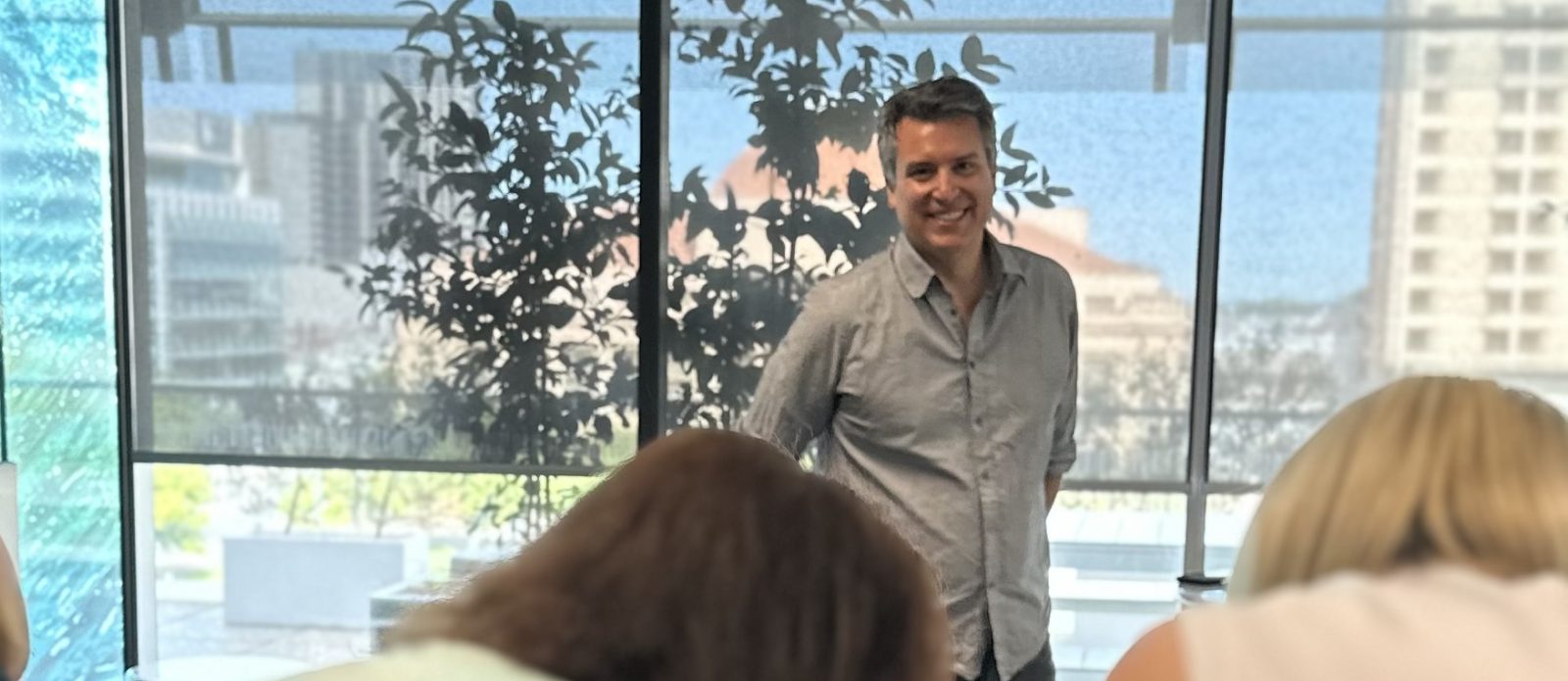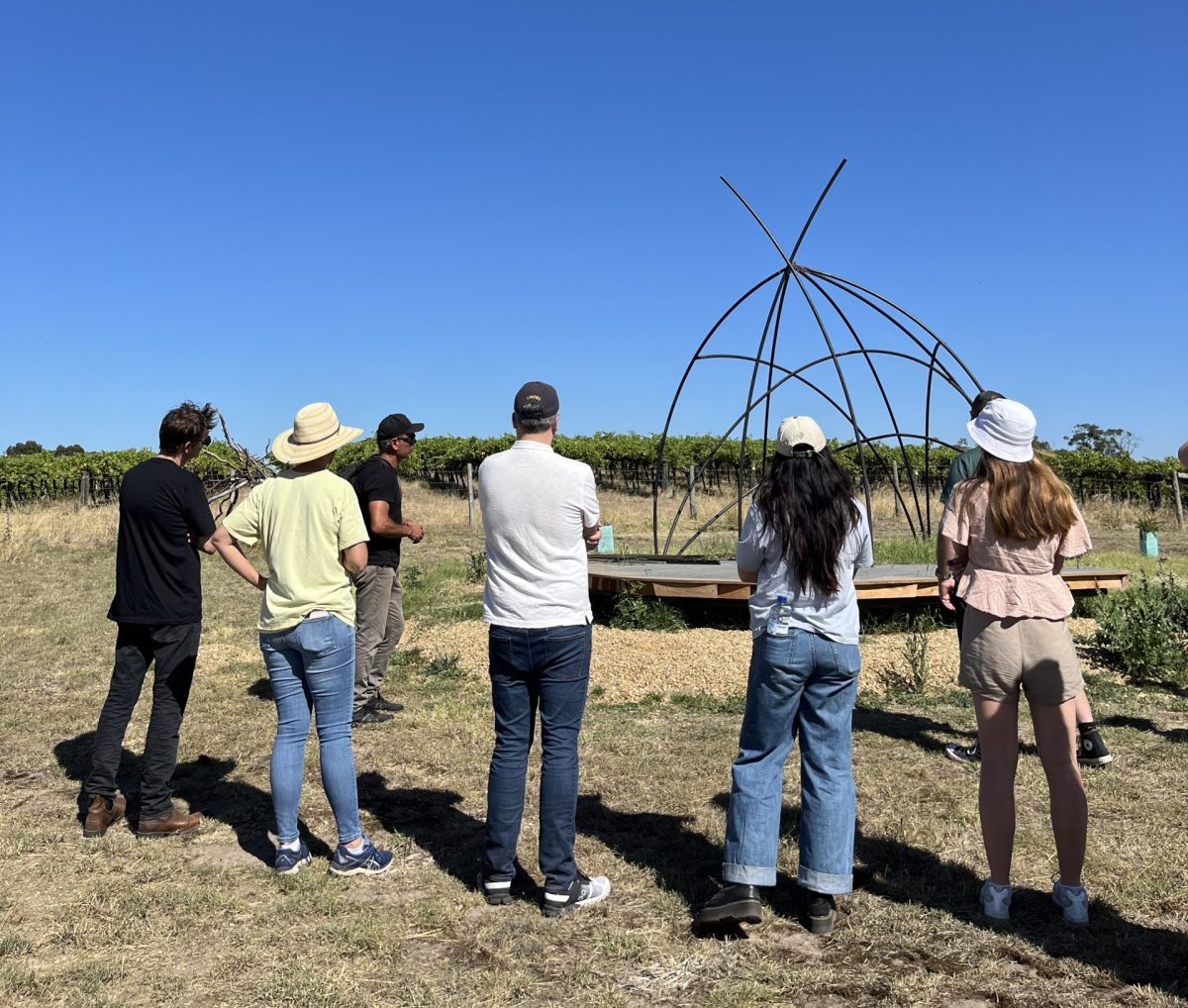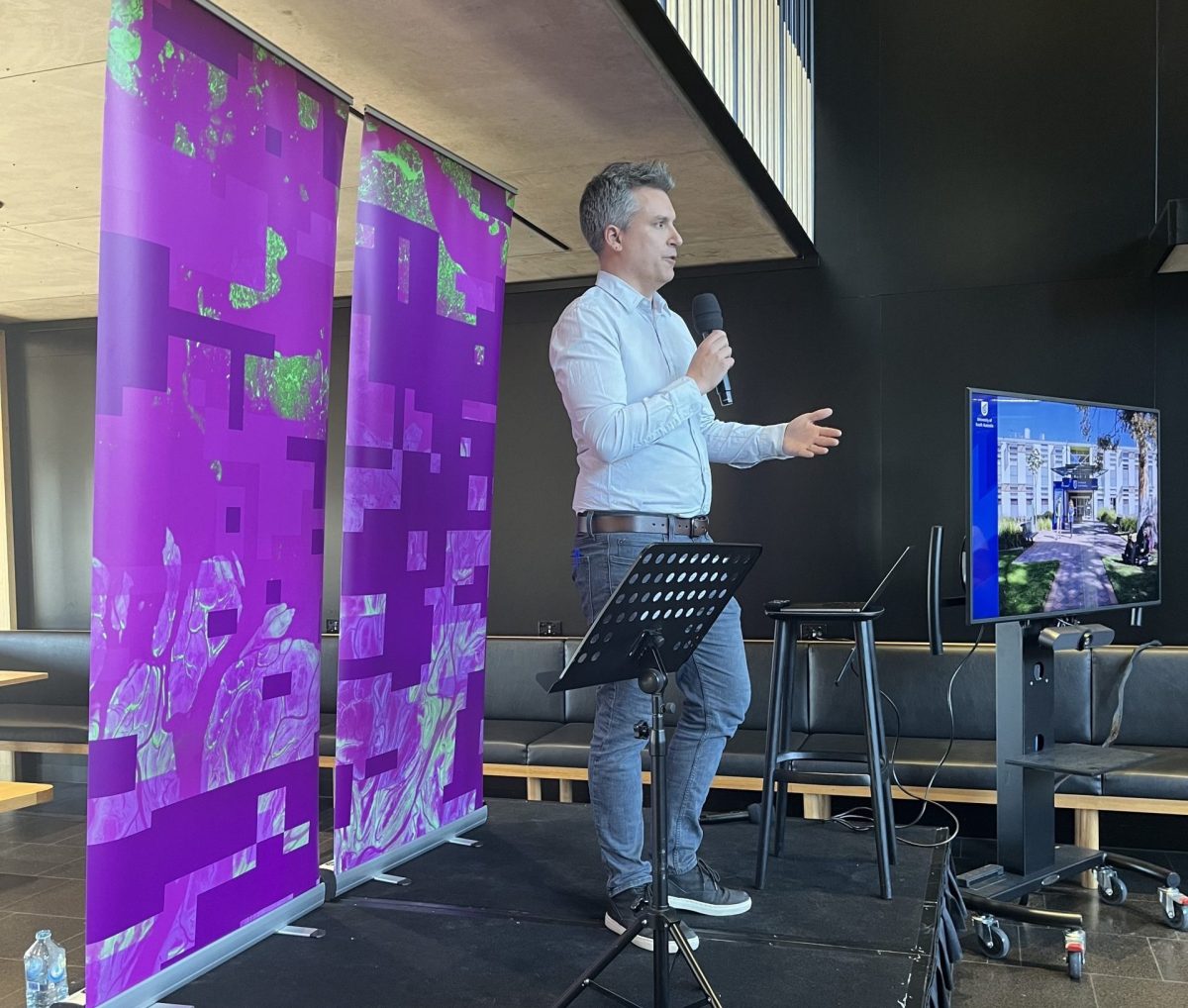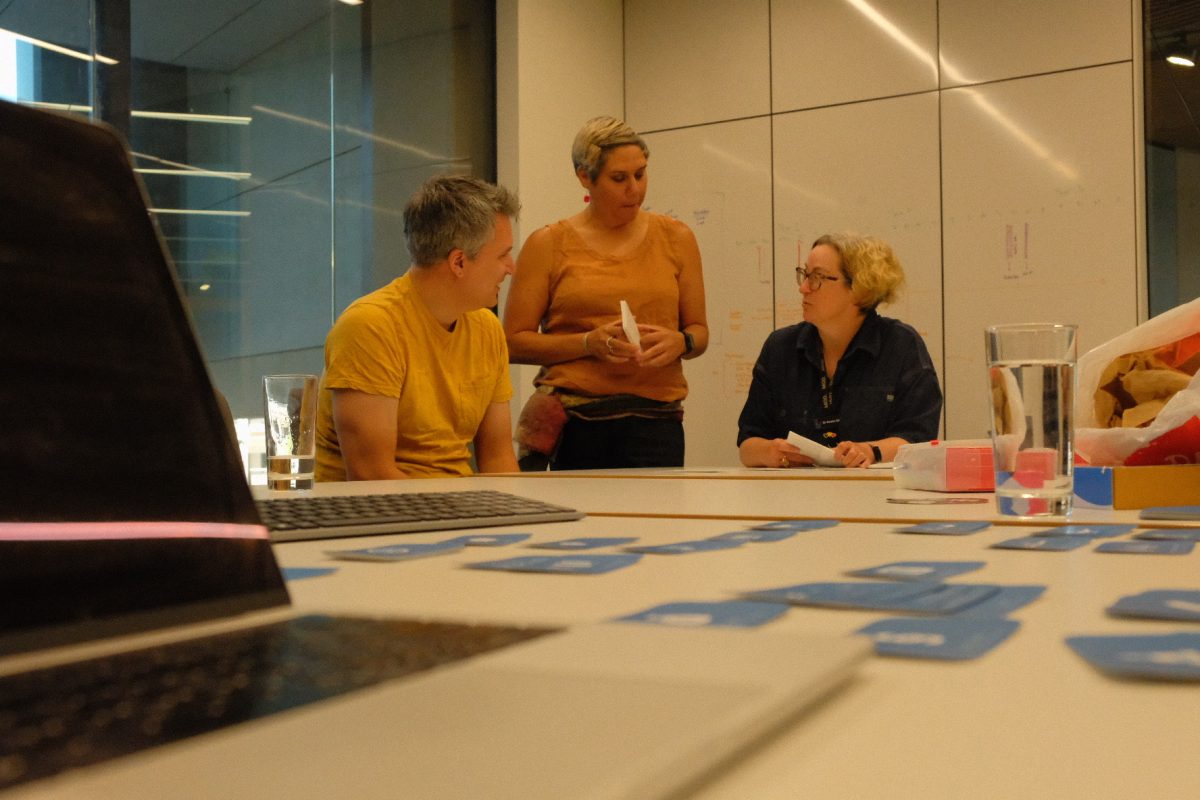Posted 26 Apr

In February we welcomed Michael Radke to MOD. as our next SA Water Futurist-in-Residence. Mike is Co-Founder and Executive Director of The Ubuntu Lab. In addition to leading social impact initiatives, Mike’s work draws on his experience in hands-on-science centres and informal learning. He is designing a distributed network of museums to help people understand people in service of peaceful and equitable futures.
Mike’s Visiting Research Fellowship (VRF) allowed him and the Director of MOD., Dr Kristin Alford, to develop a research project emerging from discussions initiated in gatherings around futures-oriented museums.
Here is a discussion between Kristin and Mike reflecting on his month as a futurist-in-residence at MOD.
Kristin: It’s been useful to reflect on our journey of thinking futures and museums and the development of both MOD. and what you’re doing with The Ubuntu Lab. Starting with where we met, at the Futures-Oriented Museums Synergies (FORMS) network gathering in Berlin.
Mike: First at the Futurium in Berlin, and then with the Kamal Laazar Foundation in Tunis/Utique. And most recently with the Museu do Amanhã/Museum of Tomorrow in Rio de Janeiro. FORMS intends to spark new planetary narratives by seeding collaborations and peer-to-peer learning amongst museum leaders. I arrived in the network as I closed out the first decade of work on The Ubuntu Lab, an organisation founded to build place-based experiences to help connect people to, and help them develop their capacity around, humanity. When you invited me to come learn from the experiences of MOD.’s startup and explore opportunities to collaborate, I leapt at the opportunity.
Kristin: The work of The Ubuntu Lab is across most continents. While based in California, you’ve worked significantly in South Africa, The Netherlands, and studied in the UK. So I find it hard to believe this was your first visit to Australia.
Mike: Yeah, I have spent a lifetime exploring the world, seeking to understand and be understood. Much of my travel has been in spent in pursuit of cross-cultural research and learning design work in service of peace building and systemic social change. And yet for the hundreds of cities and scores of countries I have crossed, I had never made it to Australia (barring a brief transit through Sydney). After a month in Adelaide I have filled that important void, not only in my travel resume, but in my work and understanding of the world.
Landing in Adelaide in the early days of the 2024 Fringe was an immersion in creative experience and human expression. The city itself might seem unremarkable to some, but that rings hollow under closer inspection. Adelaide is the people who inhabit it, and my fellowship experience was signposted by the gatherings and communities I was invited into so readily and without pretence. From the MOD. team’s open-hearted welcome to working with Megan Short and her innovation team at SA Water. To the group of human rights lawyers and physicians, friends of The Ubuntu Lab’s board chair, who hosted several parties to make sure I had a ‘home’ to support me. To the initial grounding on Kaurna Country with your friend Karl Telfer on the property he’s tending in McLaren Vale. I found a new home in the rolling hills and meandering laneways of South Australia.

Kristin: I like the idea that you found a home here through the people. We often say it’s all two degrees of separation. That closeness of connection is really an enabler of creativity. And a reason we have a reputation for being so polite.
Mike: Everyone has been lovely, but I think that is about care. I glimpsed a high functioning team that lives its’ passion through each person’s role and purpose. And learning from MOD. about not only what to do, but how to express humanity through both output and process.
Kristin: I’m glad that is evident. One of our driving aspirations is to create a place where people feel they belong. That’s where our tagline ‘ a place to be and be inspired’ comes from.
Mike: And it’s a good place to be inspired. MOD. is an incubator of both humanity and innovation. This time allowed me to learn alongside a team who really has created a new category of museum. I found practical advice and mentorship for how to approach the creation of The Ubuntu Lab’s next phase of building a global network of small community learning spaces.
Through our practice of inquiry and professional play I enjoyed exploring and compiling the elements of a new approach to future focused communities. Bringing in researchers from across the University of South Australia’s design, learning and sustainability disciplines allowed us to tease out elements and dynamics of how we can build the cities people are in dire need of, the places and institutions that could allow us all to thrive in uncertain and dynamic futures. And it was really helpful to make connections through the Foresight Community of Practice.

It was also a privilege to be here at the same time as another VRF, Dr Jilda Andrews from ANU. We also met through FORMS (in Tunisia). Discussions about culture and connection to Country, expression through art, storytelling and friendship allowed for deeper thinking about futures, deep-time, the purpose of place and the role of museums in community.

Kristin: Your feedback on how we present as a museum, and on the current exhibition BROKEN was incredibly useful. Your expertise in cross-cultural psychology helped us identify aspects of our exhibition design related to people and place. And in ways that we hadn’t thought about. We made some minor adjustments to exhibits from your input while you were here. There’s a bunch of things we’ve kickstarted around customer service based on your experiences at Apple and the Lawrence Hall of Science. As well as informing the background for our next exhibition. That’s all something I’m keen to keep working on, as well as developing the collaborative research project.
Mike: As I land back in Northern California and work on the beginnings of an exciting new phase in our work at The Ubuntu Lab I’m excited to put into practice the lessons and partnerships from my time as a Futurist-in-Residence at MOD. I am glad for the opportunity to revisit my roots in academia, and seed a potential ongoing partnership with UniSA. And I am grateful for the warm welcome into a space in MOD. and place in Adelaide that are exploring how we can express and engage with humanity in both hard and joyful ways.
Kristin: Thank you for saying yes and I look forward to welcoming you back to Tandanya/Adelaide for continued collaborations.
Follow The Ubuntu Lab on @theubutulab on Instagram or LinkedIn.
Hear from the other Futurist-in-Residence participating in the program: